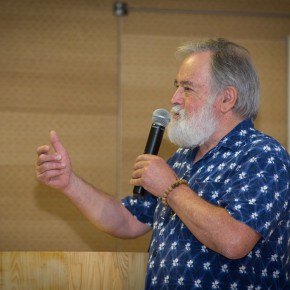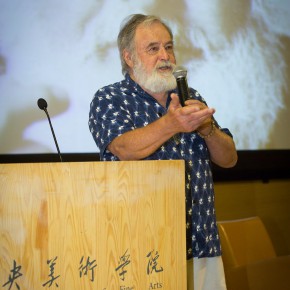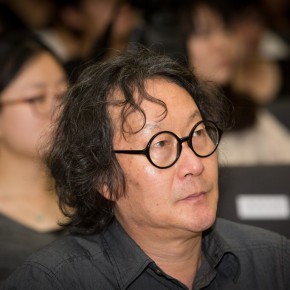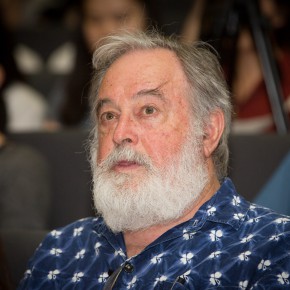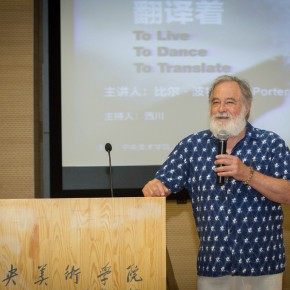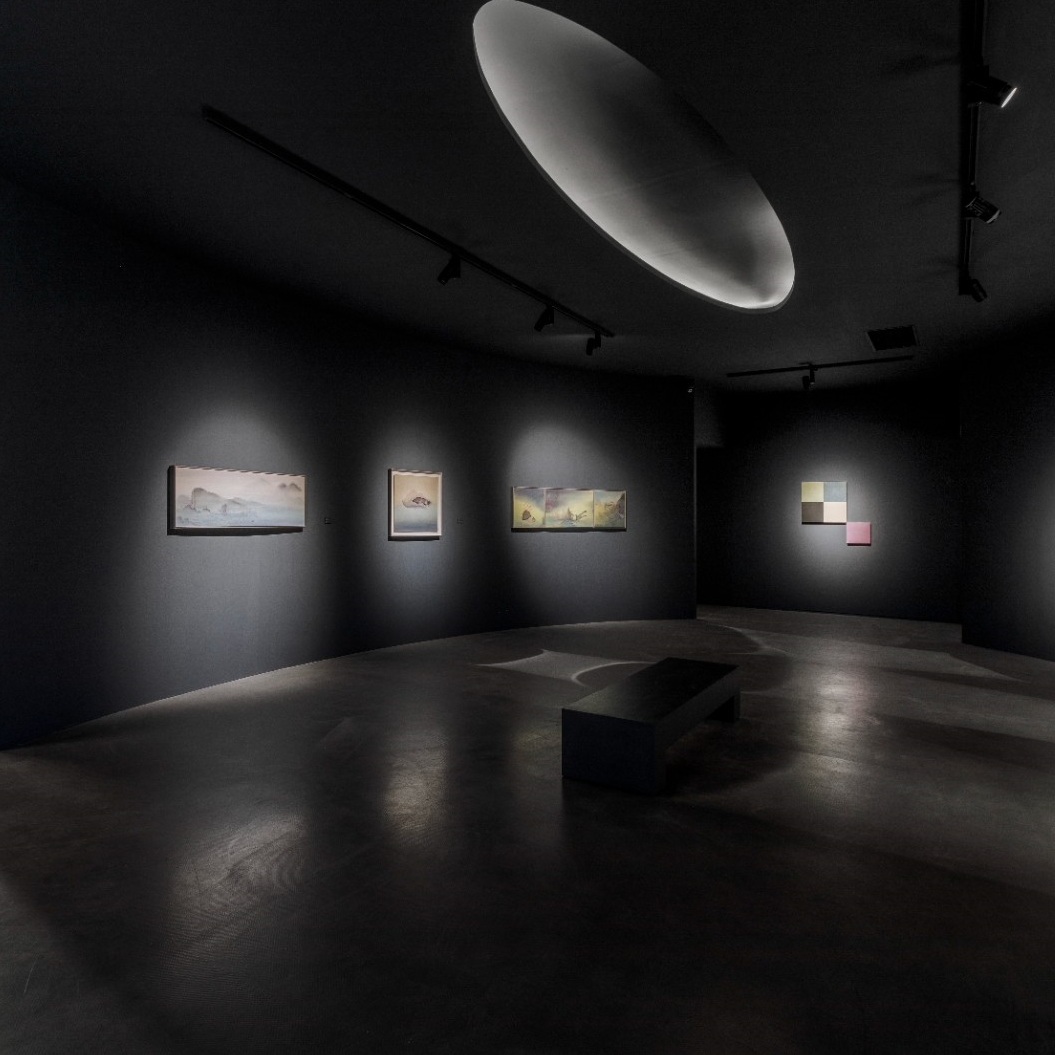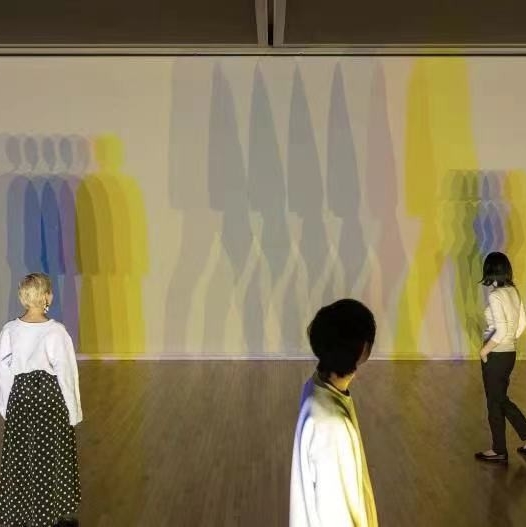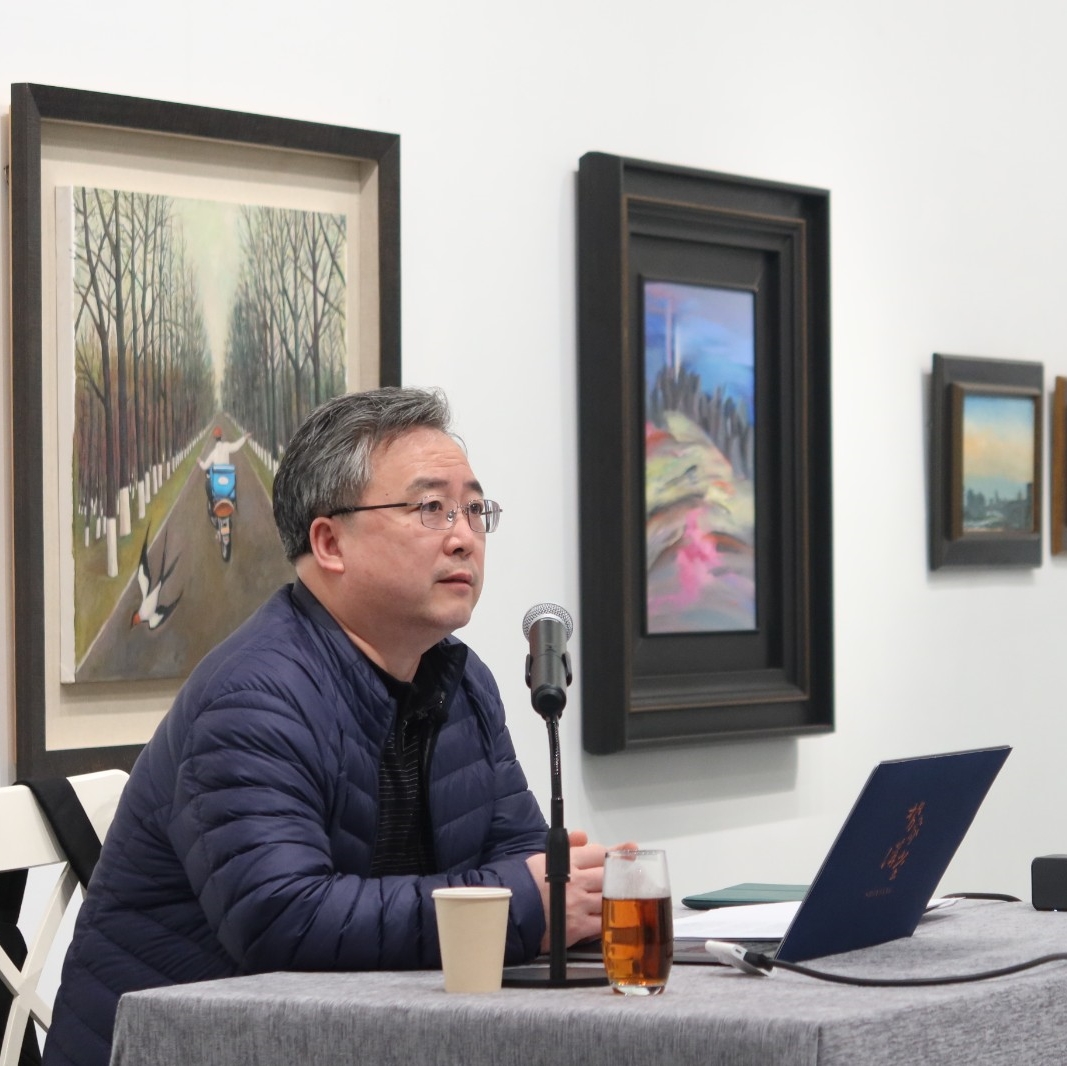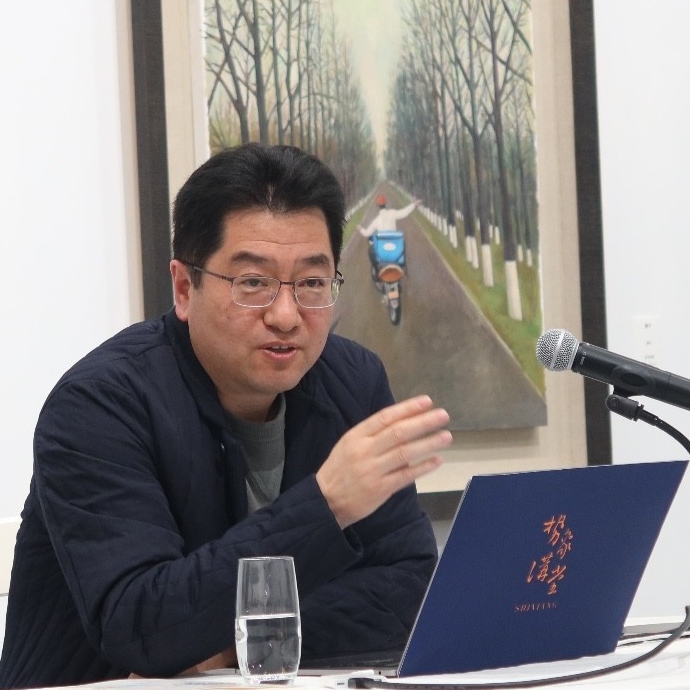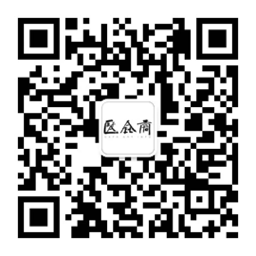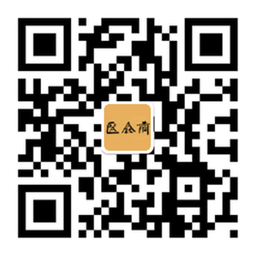
At 6:30 pm on June 12, 2014, the American writer, translator and Sinologist Bill Porter gave a lecture entitled “To Live, To Dance, To Translate” at the Auditorium of the CAFA Art Museum. The lecture was jointly organized by the School of Humanities, CAFA, and CAFA Art Museum, the poet Xichuan presided over the lecture, and honoured guests included Xu Bing, Vice President of CAFA, Yu Fan, Jiang Jie, teachers of the Department of Sculpture, and poets Zhai Yongming, Ouyang Jianghe, etc., were also presentat the lecture.
Host Xichuan initially told the audience of his experience of his meeting with Bill Porter, whose pen name was Red Pine, his publications of the Chinese edition included “Road to Heaven”, “Zen Baggage”, “The Tour of Yellow River”, “Reading the Heart Sutra”, “Finding Tao in China”, “Silk Road”, etc.; his English translations include “Tao Te Ching”, “One Thousand Poems”, “Cold Mountain Poems”, “In Such Hard Times: The Poetry of Wei Ying-wu”, etc. Xichuan said Bill Poter’s translation was distinctive and creative which also made a contribution to English poetry itself, and he called Bill Porter immortal.
Bill Porter gave a lecture starting from his childhood experiences. He was born into a rich family, but he felt rich people had a deceptive smiling face, so they weren’t “real people”. Instead, he thought the “real people” were the servants of his family. At the age of 15, his parents divorced, and his father soon became bankrupt which made him relaxed and happy. It also made him clear that money was not the target he pursued in his life.
In 1972 Porter went to the Fo Kwang Shan Buddhist monastery in Taiwan, to concentrate on studying Zen. During this period of practice, Bill learned and translated Chinese, and he thought through translating, he would be able to learn another foreign language. In addition, this experience brought him freedom which was the biggest harvest for him, because he found that, although he could learn a lot of knowledge at Columbia University, it seemed like“delusions”, his thinking was controlled by the system. But the practice in the temple helped him depose the “delusion”, and obtain freedom.
In 1989, funded by Wang Wenyang, the son of a rich man in Taiwan, Bill was able to travel in China, and he started an historical record looking for hermits in the Zhongnan Mountains, combining the experience and the historical anecdotes, he wrote a book Road to Heaven. In 2012, at 69, Bill began the last trip – “finding them gone”. This time, along the Yellow River and the Yangtze River, he followed the footprints of 36 poets including Chen Zi-ang, Cao Zhi, Ruan Ji, Ouyang Xiu, Su Dongpo, Li Qingzhao, Bai Juyi and was able to have a dialogue with them across time and space.
In the lecture, Bill Porter wittily told the story of his learning Chinese and practicing in the mountains, engaging in translation for almost 40 years, his discovery that translating was the best way to understand a culture. For Bill, translation was a kind of “dance”, and moreover, the dance relied on Chinese culture. He took the translating process as the metaphor of the story Jiang Ziya Fishing, sometimes he spends a lot of time on the translation, waiting for inspiration through meditation, and with the help of others’ strength.
In the following Q & A, Bill Porter shared the harvest on the road of translation, the feeling of China, and the understanding of Zen. Bill said there wasn’t any correct or wrong translation, as there wasn’t any perfect “dance”, but one needed to see the inner heart, because translation was a performing art which allowed the pursuit of your own happiness. Bill was like a practicing person, he thought Zen had no thought, and the so-called“enlightenment” was also a kind of delusion.
After the end of the lecture, Xichuan gave some small gifts to Bill on behalf of CAFAM, and he himself gave a set of ancient coins of the Tang Dynasty to Bill Porter.
Text: Ye Yuanfeng, translated by Chen Peihua and edited by Sue/CAFA ART INFO
Photo: Hu Zhiheng, Quan Jing/CAFA ART INFO








